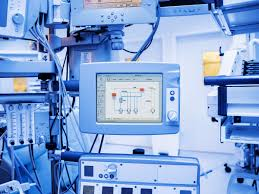
CNC (Computer Numerical Control) manufacturing is a modern machining process. It uses computerised controls and machine tools to automate production. CNC manufacturing creates complex parts and components with high precision.
In CNC manufacturing, pre-programmed computer software dictates the movement of factory tools and machinery. This process can control a range of complex machinery, from grinders and lathes to mills and routers.
The History of CNC Manufacturing
The concept of CNC began in the 1940s during World War II. John T. Parsons, an engineer, and his colleague Frank L. Stulen developed a method to produce precise helicopter blade templates using punched card technology.
How CNC Manufacturing Works
The CNC process begins with creating a computer-aided design (CAD) model of the desired part. This digital design is then converted into a computer-aided manufacturing (CAM) program, which will then generate instructions for the CNC machine. These instructions guide the machine’s movements and operations, such as cutting, drilling and shaping materials.
Industries that use CNC
– Aerospace: Used for producing precise components for aircraft such as turbine blades, aircraft engine components and structural airframe parts.
– Automotive: CNC machines create various car parts such as engine blocks, transmission parts and brake system components.
– Medical Devices: Used to produce intricate and high-quality medical tools and implants.
– Electronics: Manufactures precise components like circuit boards and connectors.
– Marine: Used to create durable parts such as propellers, hull components and engine parts.
If you are looking at purchasing your own CNC punching machines, look for a specialist machinery supplier such as https://www.cotswold-machinery-sales.co.uk/euromac-bending-machines/punching-machines/ which offers high-performance CNC punching machines.
Advantages of CNC Manufacturing
One of the main advantages of CNC manufacturing is it can produce highly accurate and consistent parts without much human intervention. This level of precision is important in industries like aerospace, automotive, marine and medical device manufacturing.
They can also operate continuously and at high speeds, significantly boosting production efficiency and reducing labour costs. Fewer errors mean less rework and scrap, saving costs on materials too. By using CNC Manufacturing, you lower your need for manual labour and therefore labour costs.



